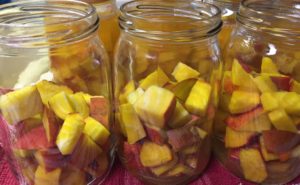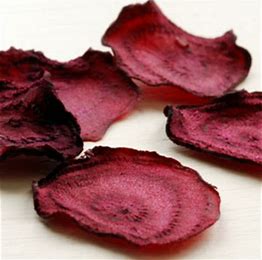Beautiful Beets
These beautifully colored root vegetables are powerhouses for our health. Here are some great benefits and some uses of this colorful beauty. Raw beet juice has been shown to lower blood pressure thanks to naturally occurring nitrates that are converted into nitric oxide in your body. Nitric oxide helps relax and dilate blood vessels, improving blood flow. The phytonutrients that give beets their deep crimson color also have powerful anti-cancer properties.
In addition, raw beets help boost immune function thanks to high vitamin C, fiber, potassium and manganese, while the betalin pigments and sulfur-containing amino acids in beets support your body’s Phase 2 detoxification process. Traditionally, beets have been valued for their ability to purify your blood and liver.High in the B vitamin folate, beets may also lower your stroke risk and are an excellent food for pregnant women. Folate is essential for many bodily processes, and lack of folate during pregnancy raises the risk of birth defects. The blood-cleansing properties of beet kvass may also help alleviate morning sickness.

Fermenting Beets
| Fermented Beets
Fermented foods are also chock-full of probiotics or good bacteria. Fermented beet juice has many additional benefits beyond probiotics. 2 large raw organic beets, cut into 1-inch cubes. Do not grate them, as this will release too much sugar. You do not need to peel the beets if they’re organic, unless you really want to, as the skin contains many bacteria that drive the fermentation. If using conventionally grown beets, peeling may be advisable to avoid pesticide residues •3 tablespoons of sauerkraut juice or pickle juice •Filtered water, spring water or distilled water, freshly squeezed beet juice, or a combination of beet juice and pure water. Tap water tainted by chlorine or other chemicals will not work, as the chemicals will prevent fermentation and cause rotting instead. •Optional: 1/2 teaspoon of natural unrefined salt, such as sea salt, or Himalayan salt. The salt helps prevent bad bacteria from forming, but too much will make the drink unpalatable Place the beets in a large-mouth mason jar, filing the jar about one-third of the way. Add sauerkraut or pickle juice, salt and water/beet juice, leaving 2 inches of space between the top of the liquid and the lid. Cover tightly and shake well to dissolve the salt. Keep at room temperature for three to five days. In winter months, the fermentation process may take up to seven days due to colder room temperatures. Keep the lid tightly closed but remember to release pressure daily. If froth, scum or mold develops, simply skim it off the top with a spoon. Do a daily taste test, and when the kvass has developed a pleasing taste, place it in the refrigerator to stop the fermenting process. Fizzy bubbles rising to the top is a sign that it’s ready. |
| Dehydrated Beets
dehydrating beets allows you to add beet powder to your smoothies, soups, or other dishes. I grind mine and use the Beet powder for my natural blush and lip balms |


Recent Comments